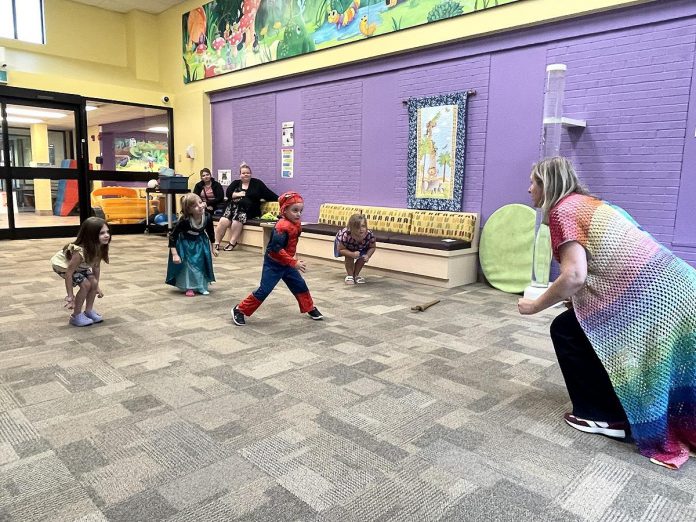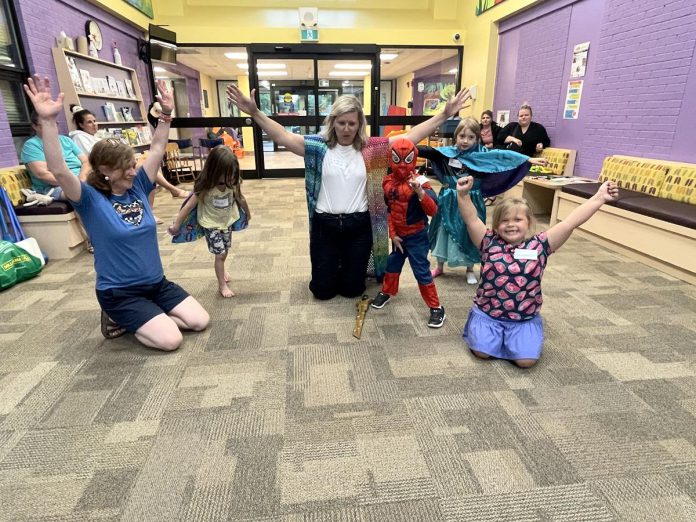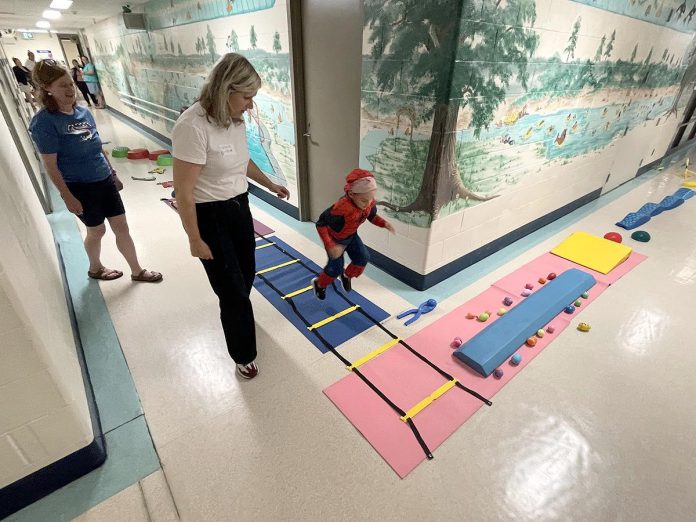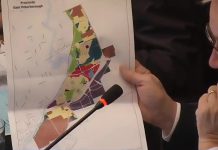
“Ok, feet flat and toes straight ahead.”
Physiotherapist Ange Harrison stands at the front of the room, directing kids in the Heel-Toe Express Group to get ready.
There’s no tip-toeing around it, as the goal of this physiotherapy program at Five Counties Children’s Centre is to teach exercises and stretches that help kids who continue to walk on their toes.
“Feet a little closer, Spiderman, you’re slipping and sliding,” Ange tells a boy at the front of the group, dressed up as his favourite superhero.
Katie Crossley, an Occupational-Physiotherapy Assistant and Ange’s colleague at Five Counties, goes over to assist the boy with his stance.
At Ange’s urging, the kids slowly bend and shoot their imaginary webs (aka Spiderman), although one of the other Heel-Toe Express participants — a girl dressed up as ‘Princess Watermelon’ — insists she is shooting watermelons.

Fun, smiles, and creativity are key elements in the Heel-Toe Express Group, a program Five Counties piloted in early summer for eligible kids who continue to walk on their toes. The program’s aim was to teach children and their families how to improve ankle range, strength and balance as they grow.
Some kids who begin to walk do so on tip-toe. While most outgrow the practice, toe walking may continue for kids with underlying medical conditions. Other times, it’s idiopathic, which means there’s no known cause.
Persistent toe walking can cause a child’s calf muscles and Achilles tendons to tighten. It can also create a muscle imbalance.
Enter the Heel-Toe Express Group, a program that ran over four weekly sessions. Consisting of warm-up exercises, targeted stations, fun games, and obstacle courses. its aim was to keep kids engaged, while helping them improve balance and strengthen muscles.
Weekly themes — like ‘superhero’ night where everyone dresses up as a character — helped to make treatment fun. Parents also took part in activities to stay connected with their child’s progress.
“We’re aiming to show both the children and families how to incorporate these activities into everyday life by making them more imaginative and fun,” says Katie. “Turning exercises and stretches that could seem repetitive and boring into a game or imaginative activity pulls in the child. They don’t realize what they’re doing is benefiting their posture, mobility and anatomy.”

There were also the group dynamics that came with the Heel-Toe Express.
“Normally, we work one-on-one with children,” Katie notes, “but with this group, it’s great to see the excitement and joy when participants interact together and work on a common goal.”
During the Heel-Toe Express Group, kids collected “train tickets” for each activity station they completed. The tickets were laminated cards that included a home exercise that the child could do outside their weekly treatment time at Five Counties.
“Children learn through play, so by making treatment ‘fun’ — both here and at home — we can help kids and their families better achieve their treatment goal,” Ange notes.
For those aboard the Heel-Toe Express, the destination remained the same: helping them hit their proper stride.


























